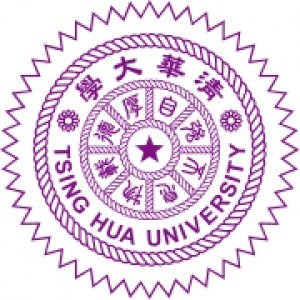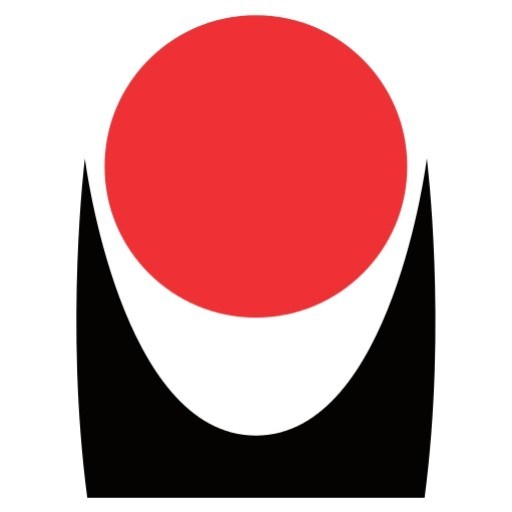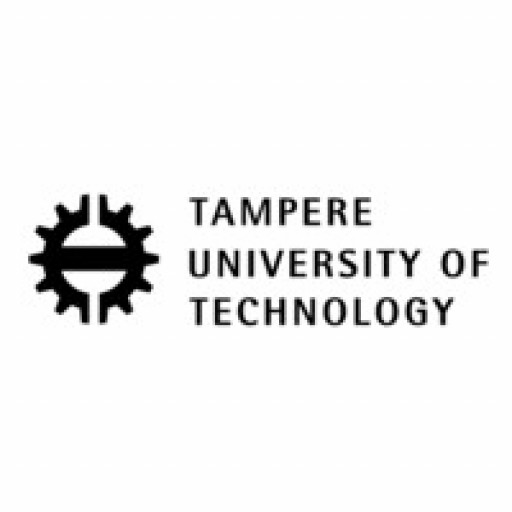Photos of university / #tudelft
BioMedical Engineering at Delft University of Technology offers a comprehensive multidisciplinary curriculum that integrates engineering, medicine, and biology to develop innovative solutions for healthcare challenges. The programme prepares students to design, develop, and implement advanced medical devices, diagnostic tools, and healthcare technologies that improve patient outcomes and quality of life. Throughout the programme, students acquire in-depth knowledge of biomedical systems, biomechanics, signals and systems, imaging techniques, and sensor technology, alongside fundamentals in electrical, mechanical, and materials engineering. The curriculum emphasizes both theoretical understanding and practical application, providing opportunities for students to engage in laboratory work, research projects, and collaborations with hospitals and medical companies. Students learn to translate clinical needs into technical solutions by applying principles of design, modeling, and testing in biomedical contexts. The programme also fosters entrepreneurial skills and innovation management, preparing graduates to contribute to startups and industry advancements. Ethical considerations, regulation, and patient safety are integral components of the education, ensuring that graduates are equipped to develop compliant and responsible biomedical technologies. With state-of-the-art facilities such as simulation labs and research centers, students gain hands-on experience in cutting-edge biomedical research. Graduates of the Biomedical Engineering programme at Delft are well-prepared for careers in medical device development, healthcare technology, research and development, or for further academic study. The programme encourages international collaboration and offers exchange options, enhancing students’ global perspective and adaptability in the evolving biomedical field. By combining engineering principles with clinical insights, Delft’s BioMedical Engineering programme aims to foster the next generation of innovative engineers dedicated to advancing healthcare through technology.
The Master's programme in Biomedical Engineering at Delft University of Technology is a comprehensive and multidisciplinary programme designed to prepare students for innovative careers in the rapidly evolving field of healthcare technology. This programme integrates engineering principles with medical and biological sciences to develop advanced solutions that improve patient care, diagnostics, and treatment options. Throughout the programme, students gain a solid foundation in core engineering disciplines such as electronics, signal processing, and computer science, combined with specialized knowledge of human biology and medical technology. The curriculum fosters critical thinking and hands-on experience through laboratory work, design projects, and collaboration with healthcare professionals and industry partners.
Students have the opportunity to tailor their education by choosing from a variety of specializations, including Medical Imaging, Biomedical Data Science, and Medical Devices & Instrumentation. The programme emphasizes innovation and entrepreneurship, encouraging students to develop market-ready solutions and to understand the regulatory, ethical, and societal implications of biomedical technologies. Scientific research experience is integral, with options to participate in ongoing projects or to undertake their own research thesis under supervision from leading experts.
In addition to technical expertise, the programme develops essential skills such as project management, teamwork, and effective communication, preparing graduates to lead multidisciplinary projects and to translate technological advances into clinical practice. The close ties with hospitals, research institutes, and industry ensure that students are exposed to real-world challenges and cutting-edge developments. Upon graduation, students are equipped to pursue careers in medical device development, healthcare consultancy, biomedical research, or to continue their academic journey in PhD programmes.
The Biomedical Engineering Master's programme at Delft is committed to fostering innovation, societal impact, and excellence in education and research. Graduates are well-positioned to contribute to the advancement of healthcare technology, making meaningful improvements in patient outcomes and quality of life worldwide.
Admission to the MSc BioMedical Engineering programme at Delft University of Technology requires applicants to hold a relevant Bachelor's degree, typically in Biomedical Engineering, Electrical Engineering, Mechanical Engineering, or a closely related technical field. The university values strong academic performance, with a minimum GPA equivalent to 80% of the maximum, and prefers candidates who have completed coursework in mathematics, physics, biology, and computer science. Applicants must demonstrate proficiency in English, usually through a TOEFL score of at least 90 (internet-based test) or an IELTS score of at least 6.5, with no section below 6.0, unless they have completed a Bachelor's degree entirely in English. Additionally, relevant work experience, internships, or research projects in biomedical technology or related disciplines are considered beneficial.
The selection process evaluates academic records, motivation, and relevant experience, with a focus on potential to succeed in the interdisciplinary field of biomedical engineering. For international applicants, submitting certified copies of diplomas and transcripts is required, along with a copy of their passport or identity card. The university also encourages applicants to submit a motivation letter explaining their interest in biomedical engineering, their career goals, and how their background aligns with the programme.
Candidates must complete the online application form before the specified deadline, usually around late January or early February for September intake. Supporting documents, including recommendation letters, CV, and proof of language proficiency, should be uploaded as part of the application. The admission process may include interviews or additional assessments for shortlisted applicants. Meeting the minimum requirements does not guarantee admission, as selection is competitive.
Delft University of Technology promotes inclusivity and values diverse academic backgrounds and experiences. The programme is designed to be accessible to students from various countries and disciplines, provided they meet the entry criteria and demonstrate a strong motivation to contribute to medical and healthcare innovations through engineering. Applicants are advised to carefully review the specific requirements listed on the official university admission webpage and ensure all documents are complete and submitted on time.
The BioMedical Engineering master's program at Delft University of Technology offers a range of financing options to support prospective students in their studies. International students are advised to explore various funding sources, including scholarships, grants, and student loans. Delft University provides several scholarship opportunities, such as the Justus & Louise van Effen Scholarship, which is highly competitive and awarded to outstanding international students pursuing technical master's programs. Additionally, students can apply for merit-based scholarships like the TU Delft Excellence Scholarship, aimed at talented students demonstrating exceptional academic achievement.
Apart from university-specific scholarships, students are encouraged to seek external funding sources in their home countries, which may include government sponsorships, private foundations, or international organizations offering awards for postgraduate studies in engineering and biomedical sciences. The Dutch government also provides information about student visas and financial requirements for international students planning to study in the Netherlands. The Dutch system of student finance typically includes loans and grants, though some international students may not be eligible for the national student finance scheme and will need to rely on other funding sources.
Students are advised to prepare a detailed financial plan that accounts for tuition fees, living expenses, health insurance, study materials, and personal costs throughout the duration of the program. The tuition fee for non-EU/EEA students is higher than for EU/EEA students, and it is important to verify the exact figures on the official Delft University website, as they may vary annually. Some students may work part-time during their studies, subject to Dutch immigration and labor regulations, which can provide additional financial support.
Overall, financing a BioMedical Engineering master's at Delft University of Technology requires careful planning and research of all possible funding options. Prospective students should contact the university's admissions office and international students department for personalized assistance and updated information on available scholarships and financial aid programs. By actively exploring these opportunities and preparing a comprehensive financial plan, students can better manage the costs associated with their studies and focus on maximizing their educational experience at Delft University of Technology.
The Bachelor’s degree in Biomedical Engineering at Delft University of Technology offers a comprehensive foundation in both engineering principles and life sciences, aimed at preparing students to develop innovative solutions for healthcare challenges. The program emphasizes interdisciplinary knowledge, integrating fields such as electronics, mechanics, biomaterials, medical imaging, and physiology to enable students to design, develop, and optimize medical devices, imaging systems, and rehabilitation technologies. Throughout the program, students engage in hands-on projects, laboratory exercises, and collaborative team work to acquire practical skills essential for the biomedical industry and research sectors.
The curriculum is structured to foster a strong understanding of both technical and biological aspects, with courses covering topics such as biomechanics, biomaterials, signal processing, and medical instrumentation. Students also gain knowledge of regulatory aspects and ethical considerations pertinent to medical device development. The program encourages innovation and entrepreneurship, providing opportunities for students to participate in competitions, internships, and collaborations with hospitals and industry partners.
Delft University of Technology is renowned for its focus on engineering excellence and practical application, which is reflected in the Biomedical Engineering program's emphasis on real-world problem-solving and engineering design projects. The program aims to produce graduates capable of operating at the intersection of technology and healthcare, equipped with both technical proficiency and an understanding of clinical needs.
Moreover, the curriculum is regularly updated to keep pace with technological advances and industry demands. Students who graduate from this program are well-positioned for careers in medical device design, healthcare technology development, research & development, and consultancy roles within the biomedical sector. The program not only provides a solid academic foundation but also encourages a mindset of continuous learning and innovation, preparing students for lifelong careers in improving health and quality of life through engineering solutions.









